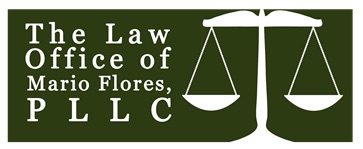Business Law Attorney in Austin, Texas
In 2020, Austin saw its business environment expand with the relocations and expansions of Oracle, Amazon and BAE Systems, with 22,114 jobs coming along with these developments. Capping it all was the announcement by Tesla that it would build a Gigafactory in eastern Travis County, adding another 5,000 jobs and an estimated $1 billion in capital investment.
While these large movements and developments make headlines and underscore the strength of the Texas economy, many other businesses-large, medium and small, and even start-up enterprises-are looking for guidance on how to keep their operations going strong while meeting all their legal and other obligations.
Businesses of all types and sizes face both the challenges of building an enterprise, as well as the inevitable disputes and operational hiccups that accompany their growth. If you're looking to start a business in or around Austin, or you're already running your own business and need legal guidance, contact me at The Law Office of Mario Flores. Whether it's an issue with creating your business or with a dispute or legal concern that has arisen during your ongoing operations, I'm ready to help.
Business Formation: Personal Liability & Raising Funds
The basic form of a business is a sole proprietorship, which means the owner-operator is responsible for everything. If money is needed, the sole proprietor must provide it or raise it from family or friends. Banks are often reluctant to provide loans to sole proprietorships. If you're sued as the owner, you're personally liable.
Partnerships can be like a sole proprietorship but with two or more owners involved. A Limited Partnership (LP) is run by a limited general partner, who assumes full liability. A Limited Liability Partnership (LLP) spreads liability among all the partners. The partners provide the financing for either one.
A Limited Liability Company (LLC) is like a cross between a partnership and a corporation. It shields the founders, who are known as members, from liability. An LLC cannot sell stock, but can add members as it needs more money-but in doing so, everyone's share of the enterprise will be diluted in terms of ownership.
A corporation not only shields the founders (who become shareholders) from liability but also enables the entity to issue and sell stock. A traditional "C" corporation will be responsible for paying all taxes, but if the founders elect subchapter S status, profits go directly to the shareholders, who are then responsible for the taxes.
Contracts & Contract Disputes
Running a business will often require the owners/operators to negotiate contracts with suppliers, with others who provide professional services like accounting, and perhaps even with delivery or other outside personnel who are not direct employees.
A contract can be express-that is, written-or it can be oral, or even implied. An express contract has more legal backing built into it, if crafted correctly, because oral or implied contracts can become a case of "who said what and who agreed to what?" if matters end up in court.
Sometimes, the difference between an oral and implied contract can get blurred. An oral contract is more like a handshake agreement: "You bring me 200 widgets each Wednesday, and I'll pay you X dollars." An implied contract may result in the same arrangement, but without the oral commitment. The widget supplier just keeps bringing the widgets and gets paid.
A contract dispute can arise when one party fails to live up to its side of the agreement. Perhaps the widget supplier misses a few weeks, and the widget seller has nothing to sell to their customers. That could represent a breach of contract.
Ultimately, if you're going to need services or products from an outside source, you'll need to reach out to a business law attorney to help work out the details. Your business deserves to be protected.
Why Hiring a Business Attorney Is Essential
It may be your lifelong dream to open a business of your own, but when you do, you also suddenly face a whole new set of legal responsibilities and obligations.
You can be personally liable if a customer slips on your floor and hurts their back. An employee may not be living up to responsibilities, but it's hard to discipline them because of discrimination and harassment protections. You have to walk a fine line and document everything thoroughly.
If your business is up and running, a dispute can arise with a partner or with a contractor that you can't resolve on your own. A government agency may intercede on behalf of an employee who filed a complaint. A whole list of disruptions can make life as a business owner more than you bargained for.
Business Law Attorney in Austin, Texas
As a business law attorney, I'm here to help you navigate these challenges and allow your business to thrive. I can help you not only set up a solid legal framework for your business, but also help you when disputes arise. If you're forming or operating a business in or around Austin, Texas, including Round Rock, San Marcos and Georgetown, and you need legal counsel, contact me at The Law Office of Mario Flores, PLLC. I will fight vigorously to protect you and the financial interests of your enterprise.
